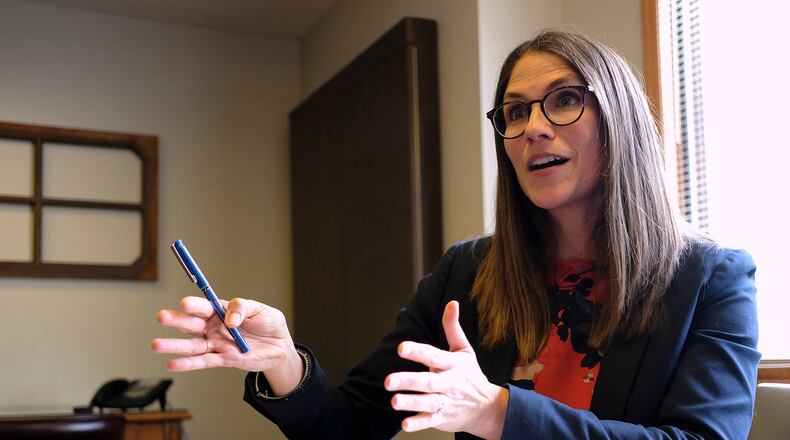“Those with school-aged children have undoubtedly depended on teachers and school counselors to help themselves, and their children, navigate this pandemic. Educators’ resilience, creativity and compassion has been a model for all of us,” Dr. Greta Mayer, CEO of the MHRB, said. “But their work doesn’t come without a cost. Constant changes in rules and policies and the strain of adapting to virtual teaching and ongoing uncertainty can lead to burnout, deflation, anxiety and compassion fatigue. These are all real, serious concerns for people working in front-line occupations that we are trying to help address.”
Finding mental health care can be a difficult process, Mayer said. Common barriers include navigating insurance benefits, finding a provider that accepts insurance, appointment wait times and whether the provider’s treatment approach is appropriate for the need.
That’s why the MHRB created the Responder Resilience Program last year to help front-line workers, like educators, to overcome some of these obstacles.
The Responder Resilience Program is designed to cut out much of the heavy lifting when it comes to finding mental health care. The only action needed to get help is calling the program number and answering a short questionnaire about patient preferences, like which times during the day are best for an appointment and where they’d like to meet their provider.
The first three-sessions with a care provider are free, and if a patient wants to continue treatment, MHRB assists them in finding long-term care that meets their budget and needs.
“Our goal is not to tell educators they have one more thing to add to their to-do lists, but to make accessing the care they want or need as easy as possible,” Mayer said. “COVID-19 has taught us how health and wellbeing are precious resources. Educators may be so focused on the engagement and learning of young people entrusted to them, that safeguards for their own health and wellbeing go by the wayside. Our leaders, teachers and school counselors are selfless, always ‘all in’ for their students and MHRB is ‘all in’ to safeguard their resilience, creativity and compassion.”
For more information about who qualifies for the Responder Resilience Program, and how to access free mental health care, residents can contact the program by calling 937-727-4097 between 8 a.m. and 5 p.m. Monday through Friday.
If you are in crisis and need immediate mental health support, residents are encouraged to contact the National Suicide Prevention Hotline at 800-273-8255 or text 4HOPE to 741-741 to reach the Crisis Text Line.
About the Author

